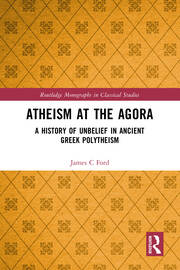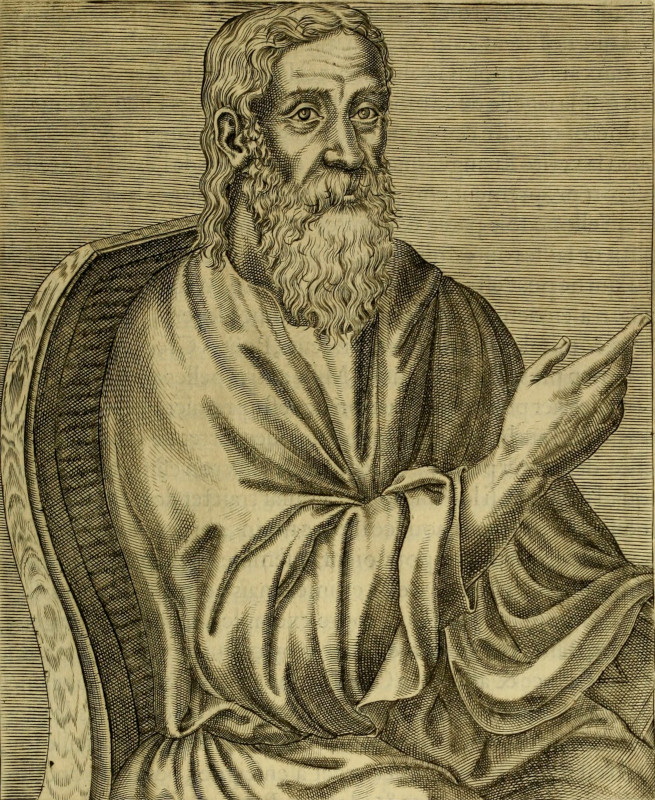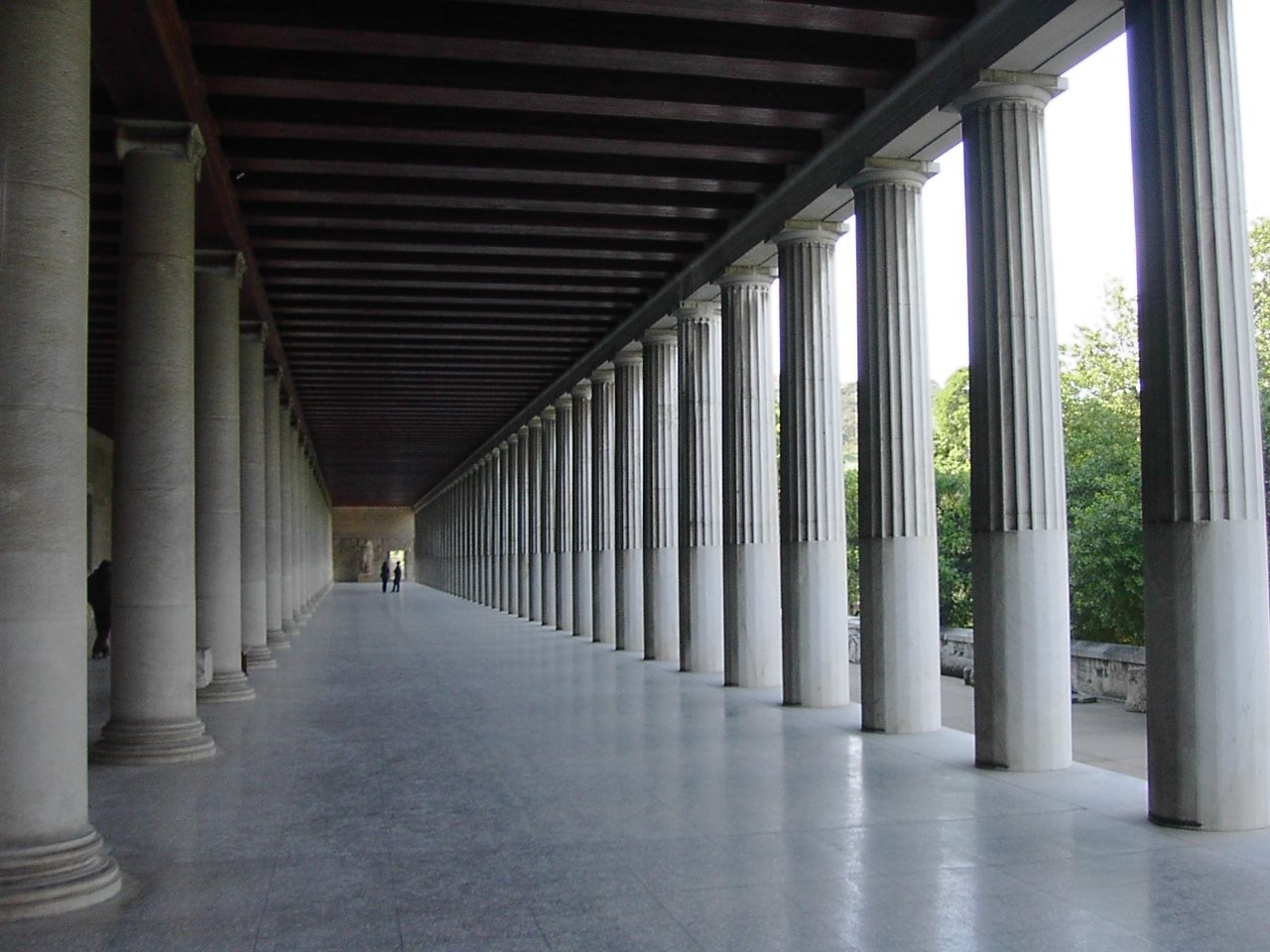Atheism at the Agora (II): some gods, not all
In celebration of the publication of Atheism at the Agora: A History of Unbelief in Ancient Greek Polytheism (11th August 2023), the author offers a series of discussions on methodology, sources, and other issues in the study of the history of atheism.
For more about Atheism at the Agora and for purchase links, click here.

This is the second part of the series. In the first part, which you can read here, I reflected on some of the research that helped me reimagine the kinds of themes, sources, and ideas that might help me build up a coherent picture of atheism in the ancient world. In this second part, my focus will be on aspects of the definition of atheism that I have applied.
The definition of atheism that I use in the book is:
the various forms of unbelief in the right gods and/or the failure to worship them in appropriate ways.
One of the more controversial aspects of my understanding of atheism in the book is that atheism can refer to perceived rejection, failure, or inappropriateness towards some gods. Today atheism is commonly understood as disbelief in all gods. The meaning of atheism is relative to society: in a monotheist society, unbelief towards a god can only be towards God, but this does not apply to a polytheistic context. This is not as strange as it may sound: it is in fact a common way that people think about religion and the gods. We can trace the changing meanings of this aspect of atheism in many places: one of the clearest arenas for it is in Christian writers answering the charge of Greek polytheists that they were atheists.
Thus we are even called atheists. We do confess ourselves atheists before those whom you regard as gods, but not with respect to the Most True God… What sensible person will not admit that we are not atheists, since we worship the Creator of this world and assert, as we have been taught, that He has no need of bloody sacrifices, libations, and incense.
Justin Martyr, First Apology 6, 13

Inscription from William Cave (1698) Apostolic antiquities.
Justin Martyr was engaged in a process of reimagining and contending with the idea of atheism. He considered Socrates and other Greek philosophers to be victims of Hellenic polytheists driven by the daimones (here, the Hellenic gods, considered ‘demons’ or false gods) who labelled monotheists trying to reveal God’s truth as atheists. He argued this in his Apology: a treatise addressed as a legal petition to the Roman Emperor Antoninus, attempting to convince the emperor to abandon Roman legal suppression of Christianity.
when Socrates endeavoured, by true reason and examination, to bring these things to light, and deliver men from the demons, then the demons themselves, by means of men who rejoiced in iniquity, compassed his death, as an atheist and a profane person, on the charge that he was introducing new divinities; and in our case they display a similar activity. For not only among the Greeks did reason (Logos) prevail to condemn these things through Socrates, but also among the Barbarians were they condemned by Reason (or the Word, the Logos) Himself, who took shape, and became man, and was called Jesus Christ; and in obedience to Him, we not only deny that they who did such things as these are gods, but assert that they are wicked and impious demons, whose actions will not bear comparison with those even of men desirous of virtue.
Justin Martyr, First Apology 5
Justin’s argument is that Christians might not believe in the gods of the polytheists but they are not atheists. This requires a redefinition of atheism: this definition is not a plain description that a Roman or Greek would agree with, but a polemic exercise deployed for a precise rhetorical purpose. In fact, Greeks may have considered Christians to be atheists for any number of reasons: because Christians did not believe in the existence of gods beyond their own (as opposed to, say, simply not worshipping them); nor did they engage in religious practices in a recognisable way (particularly on behalf of the state).
That polytheists would have considered Christians as atheists at this time, in the early ante-Nicene era, is hardly surprising. During this period many Christians were struggling to separate themselves not only from polytheists but from their Jewish roots. But to Greeks not only were Christians rejecting Greek gods, but they were rejecting their own god.
Like Julian, Tertullian recognised and confronted the polytheist view that the Christians are atheists.
You do not worship the gods, you say; and you do not offer sacrifices for the emperors. Well, we do not offer sacrifice for others, for the same reason that we do not for ourselves — namely, that your gods are not at all the objects of our worship.
Tertullian, Apology 10

Wood engraving from André Thevet (1584) Vrais pourtraits.
Tertullian took a different approach to Julian: he argues that the Christians are atheists and they are right to be atheists. He says that they do not believe that any Hellenic or other gods are divine at all: they are men, who were born, lived recorded lives, and after they died they were turned into gods.
if we refuse our homage to statues and frigid images, the very counterpart of their dead originals, with which hawks, and mice, and spiders are so well acquainted, does it not merit praise instead of penalty, that we have rejected what we have come to see is error? We cannot surely be made out to injure those who we are certain are nonentities. What does not exist, is in its nonexistence secure from suffering.
Tertullian, Apology 12
Tertullian’s argument was risky because (as he recognised), according to ancient polytheistic thought, atheism was generally believed to have disastrous consequences for the communities they shared:
[T]hey think the Christians the cause of every public disaster, of every affliction with which the people are visited. If the Tiver rises as high as the city walls, if the Nile does not send its waters up over the fields, if the heavens give no rain, if there is an earthquake, if there is famine or pestilence, straightaway the cry is, ‘Away with the Christians to the lion’.”
Tertullian, Apology 40
Tertullian’s philosophical approach was ultimately overshadowed by Julian’s more practical one. By redefining atheism and turning the charge back on the polytheists, Christians avoided a risky admission of atheism. This definitional project is even more clear in Clement of Alexandria.
He, then, who is persuaded that God is omnipotent, and has learned the divine mysteries from His only-begotten Son, how can he be an atheist? For he is an atheist who thinks that God does not exist. And he is superstitious who dreads the demons; who deifies all things, both wood and stone; and reduces to bondage spirit, and man who possesses the life of reason.
Clement of Alexandria, Stromata 7.1
Polytheists simply could not have accepted this definition of atheism: as Clement makes clear, as much as it proved that the Christians were not atheists, it also involved charging the polytheists with atheism and superstition.

Wood engraving from André Thevet (1584) Vrais pourtraits.
Another important aspect of Clement’s definition was in his tying together of atheism and superstition: an ancient project, borrowed from the polytheists. In Christian hands it was evolved to fold cultic and ‘magical’ practises into one package of inappropriate fear of the Greek and Roman gods: malevolent, superhuman, but not divine, forces.
Wrapping up
Justin, Tertullian, and Clement are only a few Christian perspectives on atheism and they are unusual in many ways. But they demonstrated to me some aspects of atheism that had been a contested idea for millennia; stretching back well into ancient Greece: you can read more about it by purchasing Atheism at the Agora: A History of Unbelief in Ancient Greek Polytheism (publication 11th August 2023)


